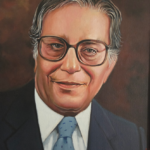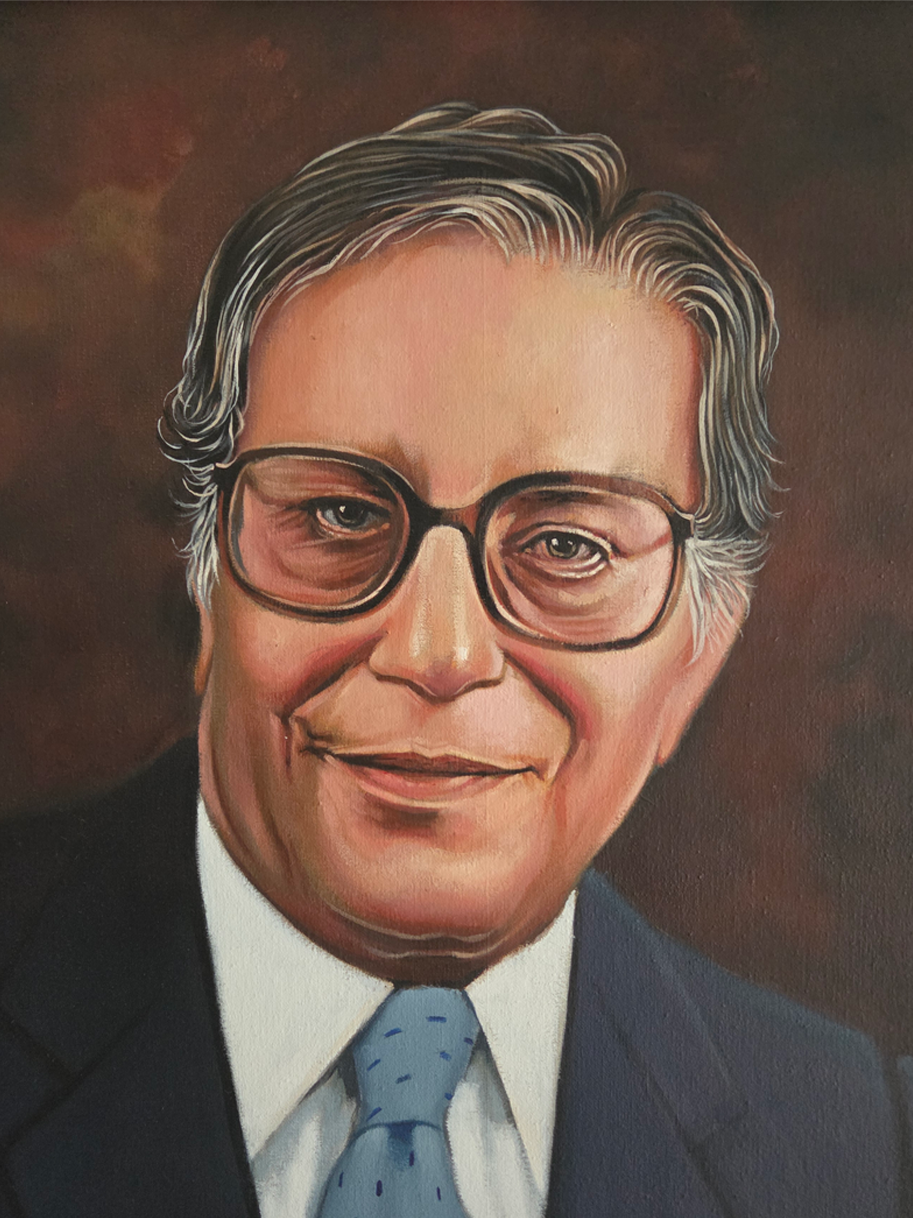book of aphorisms by a Pakistani lawyer
Rasheed Akhund
In every family, if one is lucky, there appears a figure so marvellously singular, so steeped in wisdom and warmth that he becomes a sort of personal North Star. Rasheed Ahmed Akhund was such a man; measured, principled and enigmatic. A man who, like the best of us, lived not for show but for substance. He belonged to a dwindling class of men who thought deeply, spoke sparingly and forgave quietly.
He moved among us like a scholar-sage of a gentler age: fluent in four tongues, steeped in literature, tempered by law and governed by an internal compass that did not sway with fashion or convenience. His Latin was not mere ornament, his references to Aurelius, to Rumi or to Shakespeare were dialogues of a mind conversing across centuries. But his greatest dialogue was with human frailty: not to condemn it, but to understand it.
He was an admirer of Russell, a reader of Sartre and, among many others, a contemplator of Camus. Like his literary heroes he was drawn to the difficult dignity of those who live without illusion and still persist. Like Camus’ Sisyphus, he found rebellion in grace. In his company, you felt the quiet weight of a man who had looked into the abyss and chosen, again and again, the tender act. Yet, never one to take himself too seriously, he always enjoyed a witty turn of phrase accompanied by a hearty laugh.
He did not hide behind intellect. His thoughts, like the notes of a slow fugue, revealed themselves with patience. Bergson would have said about him that he thought like a man of action and acted like a man of thought. There was no theatre in him outside the courtroom, only gravity and an almost luminous curiosity about the workings of the world and the soul.
Though the law was his discipline as one of Pakistan’s leading constitutional lawyers of his time, having represented two Prime Ministers and numerous Federal and Provincial Governments in landmark constitutional law cases, he strayed often into wonder: architecture, agriculture, the design of shoes or the polishing of gemstones. His sprawling library has over two thousand books which were always his source of comfort, inspiration and marvel. He wrote stories in Sindhi that imagined other worlds, and aphorisms in English that illumined this one. As a teacher and philosopher to three generations of his own family and countless others who met him, in one such line, he wrote:
“Teaching is constant learning, because knowledge is also unlearning to re-learn.”
As a father and grandfather, he did not so much instruct us as envelop us like sunlight, like music. He filled our heads with Stoic philosophy and our ears with Karajan’s symphonies. He took our mistakes seriously, our ideas more so. He was a man who could correct your Latin pronunciation and still make you feel brilliant for trying.
He knew, as all poets do, that life was stitched not only from duty but from music. He listened to Beethoven not as background, but as invocation. He listened to Tchaikovsky as if the music gave shape to his emotions, tender and unspoken, yet deeply understood. He made his children sit still to absorb symphonies, not for discipline but for shaping their soul.
And always, he forgave. Not out of softness, but out of clarity. He had seen enough of life to know that judgement is loud but forgiveness is eternal.
We who remain will recite no hollow elegy. He walks with us still; in the lines he underlined, in the English, Sindhi, Persian and Urdu poems he remembered and in the sudden pause before a piece of music begins. He is not lost, but transfigured.
As Eliot once wrote:
“We shall not cease from exploration
And the end of all our exploring
Will be to arrive where we started
And know the place for the first time.”
He loved deeply, his wife, his children, his grandchildren, his friends, his books, his turntable and the thought of galaxies he had not yet seen. He passed, we think, with one eye still trained toward the stars, curious as ever. “The great voyage begins,” he would have said, and then off he went, Aristotle in one pocket and a sci-fi novella in the other.
Rasheed Ahmed Akhund has gone to his stars. But in the hush between two thoughts, we still hear him.
21 April 1935 – 13 October 2024
Rasheedakhund.com
Subjects
“A person cannot say that reality is above human comprehension because, being human, he cannot know that there is anything above his comprehension"
- on Philosophy
“lf you attempt to prove existence of God with cold logic, you will land him in contradictions. If you feel him warmly, he is universal love and sense of perfection.”
- on God


